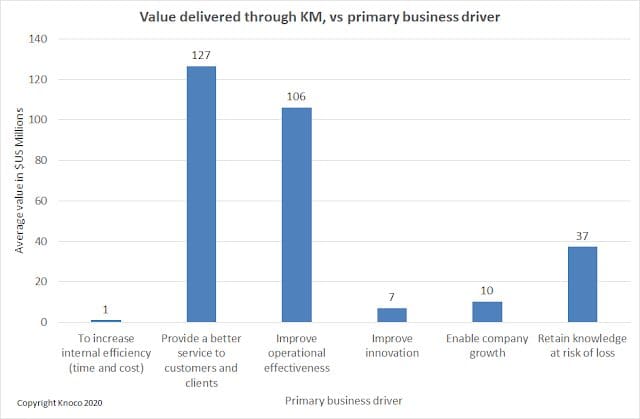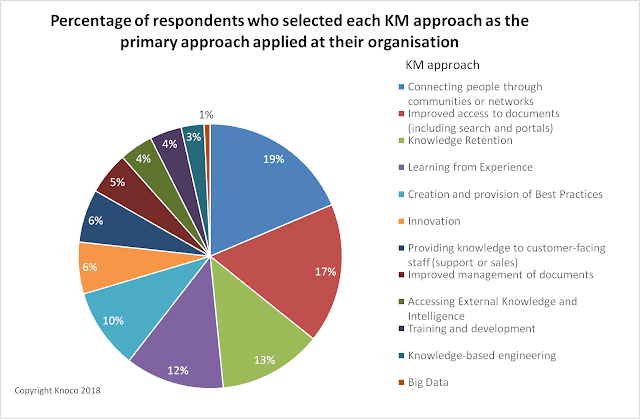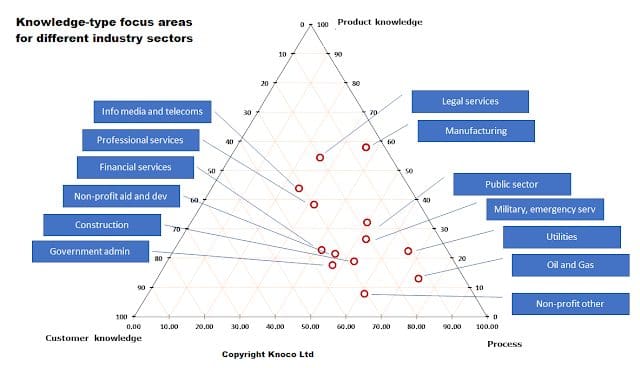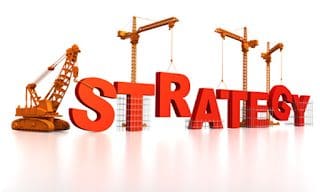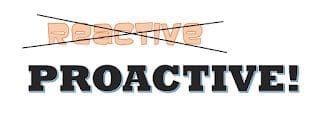
Favorite Here is another excellent article from Tom Davenport, one of the clearest writers on the topic of Knowledge Management, making the case for a structured “just-in-time” approach to the supply of knowledge. Tom starts his article as follows: In the half-century since Peter Drucker coined the term “knowledge workers,”
Read More
 Shared by Nick Milton July 23, 2020
Shared by Nick Milton July 23, 2020
Favorite I blogged last week about the 5 basic principles behind successful Knowledge Management. Let’s take that one step further, into the principles behind a KM Strategy. Strategy by Kathryn Decker on Flickr When Stephanie Barnes and I wrote our book “Designing a successful KM Strategy” we included a chapter
Read More
 Shared by Nick Milton June 25, 2020
Shared by Nick Milton June 25, 2020

Favorite The short-term/long-term balance is critical in KM. The business of KM is long term culture and behaviour change, but the company will have no patience for the long term, if you do not deliver benefits in the short term. The balance between short term and long term is tied
Read More
 Shared by Nick Milton June 9, 2020
Shared by Nick Milton June 9, 2020

Favorite 2 years ago I posted an article where I suggested that a KM strategy based on “finding better knowledge” was more valuable than a strategy based on “better ability to find knowledge”. Now we have a figure for how much more valuable. In the 2018 post I suggested that
Read More
 Shared by Nick Milton June 3, 2020
Shared by Nick Milton June 3, 2020

Favorite What do companies around the world identify as their primary KM strategic approaches? This was another area we wanted to explore in our two global surveys of Knowledge Management. One of the questions in our surveys therefore covered the topic of strategic focus areas for KM, and we asked
Read More
 Shared by Nick Milton October 15, 2019
Shared by Nick Milton October 15, 2019

Favorite Some companies make things, some do things, some maintain relationships. Process companies, Product companies, Client companies – different focus, different business, different approach to KM. OK, so that is an oversimplification – most companies are a mix of Doing, Making and Relationship Management; they have product departments where they
Read More
 Shared by Nick Milton September 4, 2019
Shared by Nick Milton September 4, 2019
Favorite Implementing Knowledge Management requires two parallel strategies, like the two prongs of a fork. There was a very interesting article by Ron Bascue in the 2011 Fall edition of the US Army KM newsletter (now no longer available online), about a twin-strategy approach to delivering a Knowledge Management strategy.
Read More
 Shared by Nick Milton August 30, 2019
Shared by Nick Milton August 30, 2019

Favorite This post is an analysis of a KM role description, taken from a recent job vacancy, identifying the core elements of a strategic KM leadership role. This Photo by Unknown Author is licensed under CC BY-SA-NC The job vacancy appeared last week on LinkedIn, and is for a Knowledge
Read More
 Shared by Nick Milton July 24, 2019
Shared by Nick Milton July 24, 2019

Favorite When beginning with KM, don’t start with the How; start with the What. We frequently find that when people start thinking about Knowledge Management implementation, they start thinking about the solution first. They may research technology, they may seek out some excellent processes, they may (if they are smart) think
Read More
 Shared by Nick Milton July 17, 2019
Shared by Nick Milton July 17, 2019

Favorite Is your Knowledge Management framework reactive, or proactive? And what’s the difference? Let’s look at two ways in which you can develop a KM approach of KM Framework. Let’s call them reactive, and proactive. Reactive KM A reactive KM framework reacts to events. You may react to the threat
Read More
 Shared by Nick Milton July 12, 2019
Shared by Nick Milton July 12, 2019
![]() Shared by Nick Milton July 23, 2020
Shared by Nick Milton July 23, 2020


